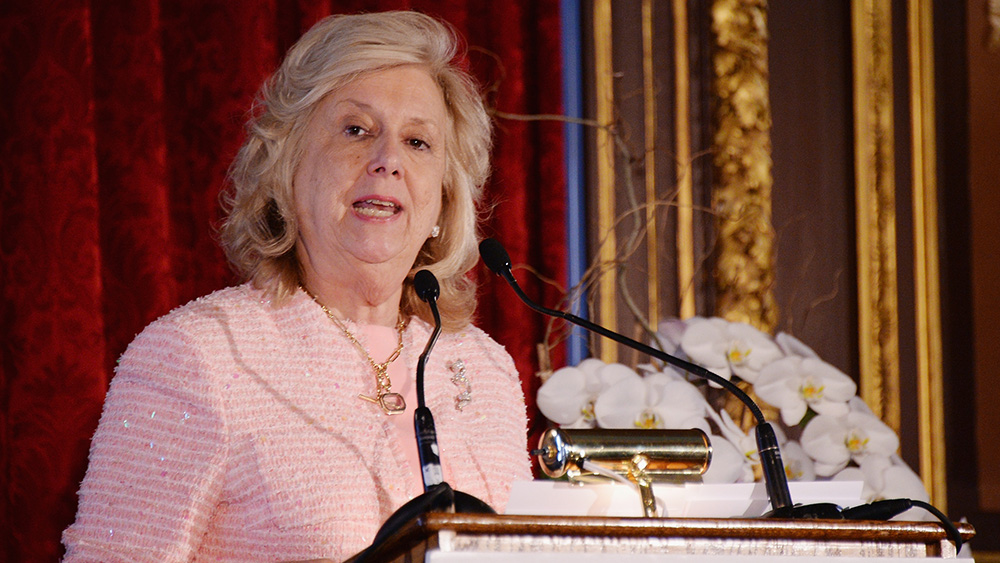Netflix Defends Depiction of Prosecutor Linda Fairstein in ‘When They See Us’ Lawsuit
By Gene Maddaus
LOS ANGELES (Variety.com) – Netflix has fired back at former New York prosecutor Linda Fairstein, defending its villainous depiction of her in “When They See Us.”
Fairstein filed a defamation lawsuit against the Netflix and director Ava DuVernay in March, alleging that she was portrayed in “When They See Us” as a racist prosecutor hellbent on locking up innocent men. She argued she was depicted using racially inflammatory language that she would never use, and that her career as a public speaker and legal consultant had been ruined.
In a motion to dismiss the suit filed on Monday, Netflix argued that the characterization was substantially true, and that the filmmakers have creative license to invent dialogue and scenes for dramatic purposes.
“No less than a dry, abstract expression of opinion, the dramatized dialogue of which Plaintiff complains is protected speech,” Netflix’s attorneys argued. “And here, criticism of Plaintiff’s actions as a powerful public official is at the heart of what the First Amendment protects.”
In the lawsuit, Fairstein took issue with numerous scenes, saying she was not present for certain events and never spoke the words her character utters. For example, Fairstein is shown interrogating one of the detainees, and asking if he was out “wilding” with one of his friends — referring to the fear of roaming groups of violent teenagers back then.
Fairstein said she never interrogated anyone in the case, and did not know what the term “wilding” meant at the time.
In response, Netflix quoted Fairstein referring to the attacks as “wilding” in a public statement in 2003, and referring to the suspects as “vicious marauders” in her 1993 non-fiction book.
“Plaintiff’s own words alone bar any claim that this dialogue is less than substantially true,” Netflix’s attorneys argue.
Netflix did not point to any evidence that Fairstein actually questioned any of the detainees. But Netflix did note that Fairstein told the mother of a 15-year-old detainee that she could not see her son until after the interrogation was over — a scene that is also depicted in the series.
“A false statement is not actionable if it could have produced no worse an effect on the mind of the reader than the truth,” Netflix argued.
Fairstein — who was portrayed by Felicity Huffman — is also depicted as calling for a roundup of “every young black male who was in the park last night,” and directs officers to go to Harlem and “stop every little thug you see.” In her complaint, she says the scene never happened, she didn’t have the power to order NYPD officers to do that and the scene wrongfully depicts her as racist.
Netflix argued that Fairstein cannot claim that the scene shows her as a racist, as her character would have been looking for suspects that fit a description. Netflix also quoted Fairstein referring to the NYPD’s work on the case as “brilliant.”
“The dialogue, moreover, is clearly hyperbolic and reflects the fraught circumstances,” Netflix argued. “No reasonable viewer would believe the Fairstein character was literally expecting officers to arrest ‘every kid’ who was in Central Park.”
Fairstein has continued to defend the now-vacated 1989 prosecution, though the suspects have been exonerated. Netflix argues that just as she is free to give her opinion of the case, the defendants are also entitled to have the story told from their perspective.
“Thus, even if the dialogue did not actually reflect Plaintiff’s own words and even if her portrayal could be interpreted to attribute ‘racist motivations’ to her, such statements are protected opinion in the context of this dramatization and its clear point of view,” Netflix argued. “Plaintiff cannot hold Defendants liable for ‘expressing their opinion of’ her actions as a public official who helped lead, and to this day supports, the prosecution against the Five.”
Netflix also filed a motion to strike the complaint under the California anti-SLAPP statute, which protects speech on matters of public concern, and a motion to dismiss the suit because it was wrongfully filed in Florida.

